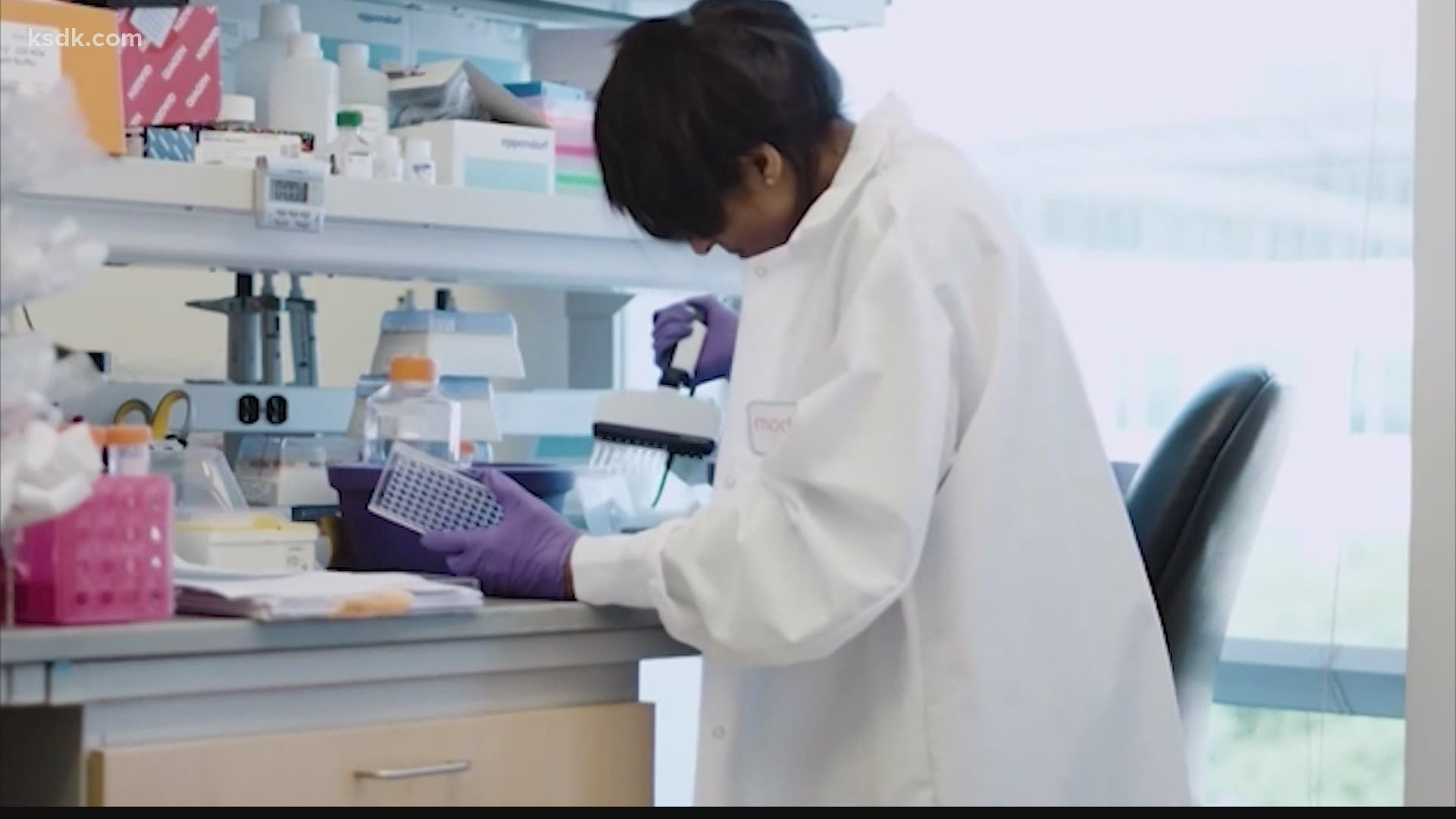ST. LOUIS — Monday morning started off with more promising news in the fight against COVID-19. Moderna announced its vaccine is almost 95% effective. That's about 5% better than the already promising claims from Pfizer.
Within weeks, both Moderna and Pfizer are on track to ask the FDA for permission for emergency use of the vaccine in the U.S. Much like Pfizer's vaccine, Moderna's initial supplies will be limited and rationed.
So, what determines effectiveness and how does this vaccine compare to the effectiveness of the flu vaccine?
The Pfizer vaccine has been tested on a diverse group of 43,000 people, ranging from those with preexisting conditions to those as young as 16 years old.
Even days after the second dose, the company reported the vaccine had an efficacy of over 90%. That’s huge, especially since the FDA only requires a vaccine be 50% effective.
For comparison, the CDC says the flu vaccine is 40-60% effective among the overall population. But there are others that are even better. Two doses of the MMR vaccine, which protects against measles, mumps and rubella, is 97% effective.
The same can be said with the varicella vaccine, better known as the chickenpox shot. Two doses have shown to be nearly 100% effective.
So, what does this mean? Well, there’s a reason we don't see many cases of the highly contagious measles and chickenpox. Children receive those vaccines starting as young as 1 year old, and with such a high rate of effectiveness, they're almost guaranteed protection.
Of course, we still see a lot of the dreaded flu. That's due to a combination of its effectiveness, how many strands of the virus there are and not everyone getting their annual shot.
Imagine, if Pfizer's vaccine holds up and people actually get it, cases of COVID-19 could become as rare as cases of the measles.

